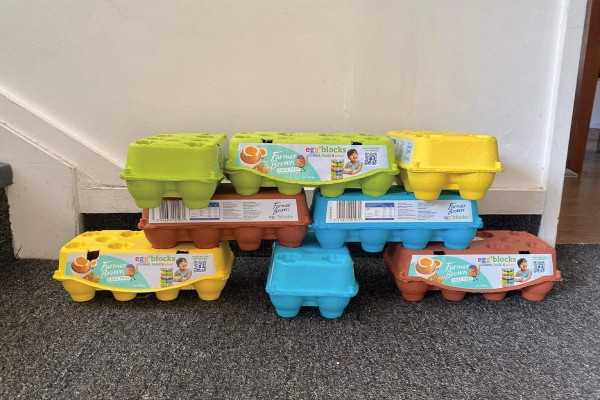Students are concerned an eggspiracy is afoot after Farmer Brown launched a campaign selling eight packs of eggs in LEGO block shaped cartons. Concerns have also been raised about the environmental impact of the cartons, with student murmurs protesting the lack of environmental impetus the egg company appears to have. What's more, the packaging contains three additional empty cartons, leaving pundits to ask: “Why would I need these if I was buying eggs in the first place?”
Student concerns have been momentarily dispelled after it was reported to Critic Te Ārohi that the price of these egg cartons during a Pak’n’Save special was $2.59. Speaking to the issue, Lou, a second-year economics student who has made it to a total of three BSNS113 lectures this semester (go Lou!) acutely pointed out that “low prices equal high demand.”
Frequent egg-purchaser and second-year neuroscience major Eva said that the campaign allowed for “a really good source of protein, but a waste of space in our kitchen." This campaign follows recent reports from Consumer NZ stating that the price of eggs “almost doubled” between May 2022 and July 2023. Second year BCom management major Rose said, “I think that it allows for the organization to gain a lot of money, money, money […] and I do love money."
Yet despite their popularity, students have lamented Farmer Brown’s eggcess, with second-year Environmental Management major Millie stating that “these eggs represent everything wrong with the world [...] though they are recyclable, manufacturing and recycling processes still produce emissions. So, why don’t they just not produce the eggcess in the first place?" She stole our joke.
In a comment to Critic Te Ārohi, ZeaGold/Farmer Brown stated: “Farmer Brown egg block cartons are 100% recyclable, therefore are able to be continuously reused and recycled, hence contributing to a sustainable life cycle of packaging materials. For eggxample, the carton can be reused to plant seedlings, store Christmas decorations and provide kindergartens and preschools with free materials for arts and craft activities which assist with cognitive development in young children. The cartons are also 100% biodegradable which provides benefits that contribute to reduced waste accumulation.”
ZeaGold argued that the cheap price of the product came as a response to “eggs drop[ping] off Kiwi’s weekly meal repertoire due to the egg supply shortage.” Continuing, the company stated that they sought to “inspire and remind Kiwi’s about the easy, affordable any-time meal solution that eggs provide and stimulate consumption.”
The question that is stumping Critic Te Ārohi is: why not just include one egg carton?







